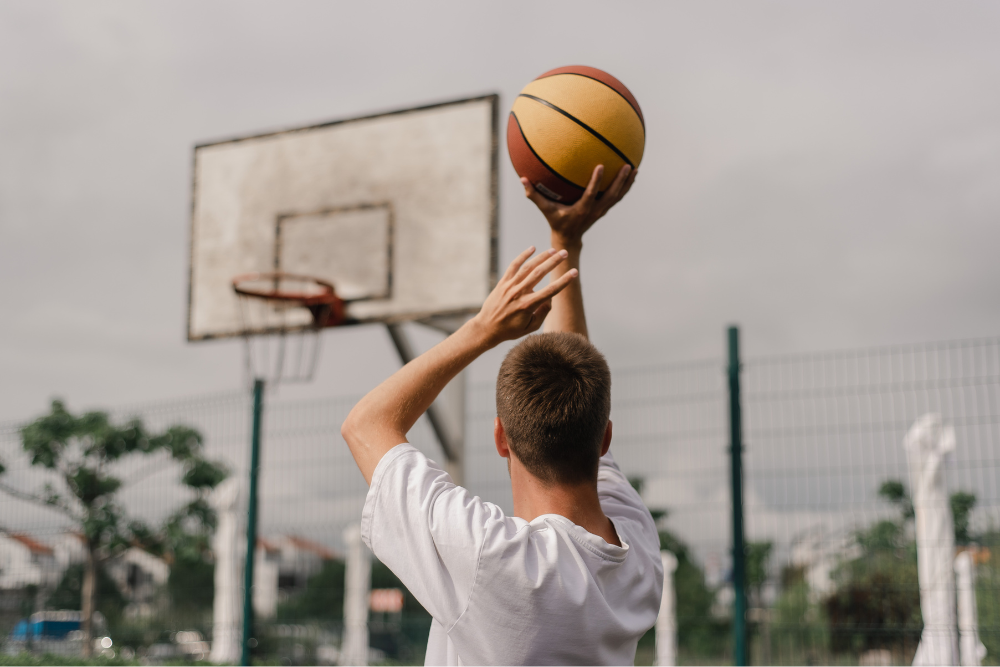Quarantine measurements, canceled events, family and friend visits… These disturbances in our ‘normal lives’ quite often increase our stress levels, but also cause fatigue, disrupt our sleep and in some cases even result in physical issues.
Now that the ‘corona storm’ has calmed down, some people feel liberated, and the problems are behind them. But that does not apply to everyone. Indeed, for many there is still fear of another lockdown or more rigid measurements.
How can Mindfulness-Based Stress Reduction help you cope with the COVID-19 situation? We give you three tips.
Exercise
One of the cornerstones of MBSR is exercise. When you exercise, your body releases certain chemicals – such as serotonin and dopamine – which reduce stress and feelings of depression. In addition, it has been shown that exercise strengthens the immune system.
When you do sports outdoors and together with other people, there are even more advantages. You spend time in nature, have social interactions and get some fresh air, all of which have a positive effect on your mental well-being.
 Besides lowering stress levels, it is also known that people who suffer from insomnia or other sleep disorders can benefit from regular exercise.
Besides lowering stress levels, it is also known that people who suffer from insomnia or other sleep disorders can benefit from regular exercise.
Of course, there are hundreds of different sports disciplines, but Jon Kabat-Zinn focuses on walking and yoga within MBSR. Both are gentle types of exercise, feasible and doable for all ages.
However, avoid intense exercise late at night, before going to sleep, since this can interfere with your sleep. You can find more information and tips related to sleep hygiene here.
Would you like to start exercising more often? Our center organizes bi-weekly walking meditation sessions and yoga classes. More info can be found on the page ‘Activities’.
Keep worrying to a minimum
This may seem easier said than done. We’ll help you get started!
- Recognize and accept that you are worrying: mindfulness is about letting be what is. So don’t criticize yourself when a thought enters your mind. Calmly notice that you are in fact worrying and don’t judge it.
- Share brooding thoughts with family or friends. Or if this is not possible at the moment, write down your thoughts in a diary. You will notice that you will more easily find constructive solutions, but also it will help you put things in perceptive and let go.
- Make a list of possible actions you can take with regard to the theme you (continue to) worry about. See with which (small) step you can start to tackle the theme you are brooding about. For example, you can start a conversation with your doctor, a family member and/or a good friend.
- Do things mindfully. Most of the time, we get distracted easily when we are doing a particular activity or task. And that causes thoughts and worries to pop up in our minds. We scroll on our phones or think about our to-do list. Tip: focus on the here and now during at least one activity that is part of your daily routine. Examples are eating your breakfast mindfully, brushing your teeth or reading a book. Meanwhile, keep social media time, reading news and other distractions to a minimum. Over time, this will train you to do activities with focus, instead of getting consumed by thoughts all the time.
Meditate daily and consciously focus your attention

Sitting (way too) long on a mat, with incense and candles around you… Is that what comes to your mind when you hear the word meditation? Indeed, meditation used to have a woolly label, but that is no longer the case today.
Meditation is a key point in MBSR and the advantages have been scientifically proven. Curious what the impact of meditation is? You can read more about it on the page ‘What is mindfulness’.
But what exactly is meditating? When you meditate, you will indeed sit down quietly. But it is way more than that. In short, it is about uninterrupted focus on one particular thing, such as your body, thoughts or smells. Meditation is usually guided by a teacher, who explains what to do in audio recordings or live.
There are a number of different types of meditation techniques within MBSR. Examples are seated and lying down meditation, body scan and standing up yoga meditation.
Do you want to start with MBSR? Two group workshops for adults start in March. You can find more info on the page ‘8-Week MBSR Program’.
Do you still have questions? Are you having a hard time putting a stop to your (anxiety and/or brooding) thoughts? Talk about it! Contact your doctor, a psychologist or a psychiatrist. Some useful links:



